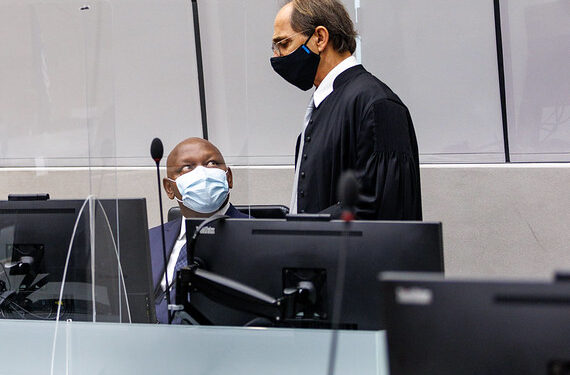The Paul Gicheru case at the International Criminal Court is drawing to a close as the parties prepare to present their closing statements on June 27, 2022.
In readiness for the final stages of the case, Trial Chamber III’s Judge Miatta Maria Samba has directed both the prosecution and the defence to file their closing briefs by June 10, 2022.
According to the chamber, each party will be accorded one hour to make their statement, with the prosecution going first.
Gicheru has been charged with offences against the administration of justice consisting in corruptly influencing witnesses regarding cases from the situation in Kenya.
The trial started on February 15, 2022. The prosecution presented eight witnesses, who were all vigorously cross-examined by Gicheru’s defence team led by Michael G. Karnavas. The lawyers tried to discredit most of the witnesses and portray them as liars whose testimony could not be trusted, a perception Karnavas tried to perpetuate in subsequent media interviews, including one with Journalists For Justice.
The Office of the Prosecutor completed its presentation of evidence on March 29, 2022. The defence announced on April 25, 2022 that it would not present any evidence, while at the same time asking the court to allow it to introduce new evidence through a bar table motion (other than through a witness in a court hearing).
On May 12, 2022, the chamber issued a decision on the motion, rejecting some of the documents and recognising some as formally submitted.
The witness interference case was brought before the court after Kenya’s current Deputy President, William Ruto, and former journalist Joshua Arap Sang faced six counts of crimes against humanity that took place during the 2007/2008 post-election violence. The charges were vacated on April 5, 2016, due to witness interference.
An arrest warrant was issued against Gicheru and Philip Kipkoech Bett on March 10, 2015, and unsealed on September 10, 2015. On November 2, 2020, the lawyer surrendered himself to the authorities of the Netherlands, which transferred him to the custody of the ICC the next day. Pre-Trial Chamber A later severed the cases against Gicheru and Bett.
Violence broke out after the December 2007 election results that ushered in President Mwai Kibaki’s second term were disputed by his main rival, opposition leader Raila Odinga. Attacks engulfed many parts of the country, leading to the death of more than 1,000 people and the displacement of hundreds of thousands of others.
In one of the two Kenya cases before the ICC that resulted from the violence, Kibaki’s successor, Uhuru Kenyatta, and Francis Muthaura, a senior government official, who were facing five counts of crimes against humanity, had the proceedings against them terminated on March 13, 2015, upon the prosecution’s notice of withdrawal of charges due to insufficient evidence.







